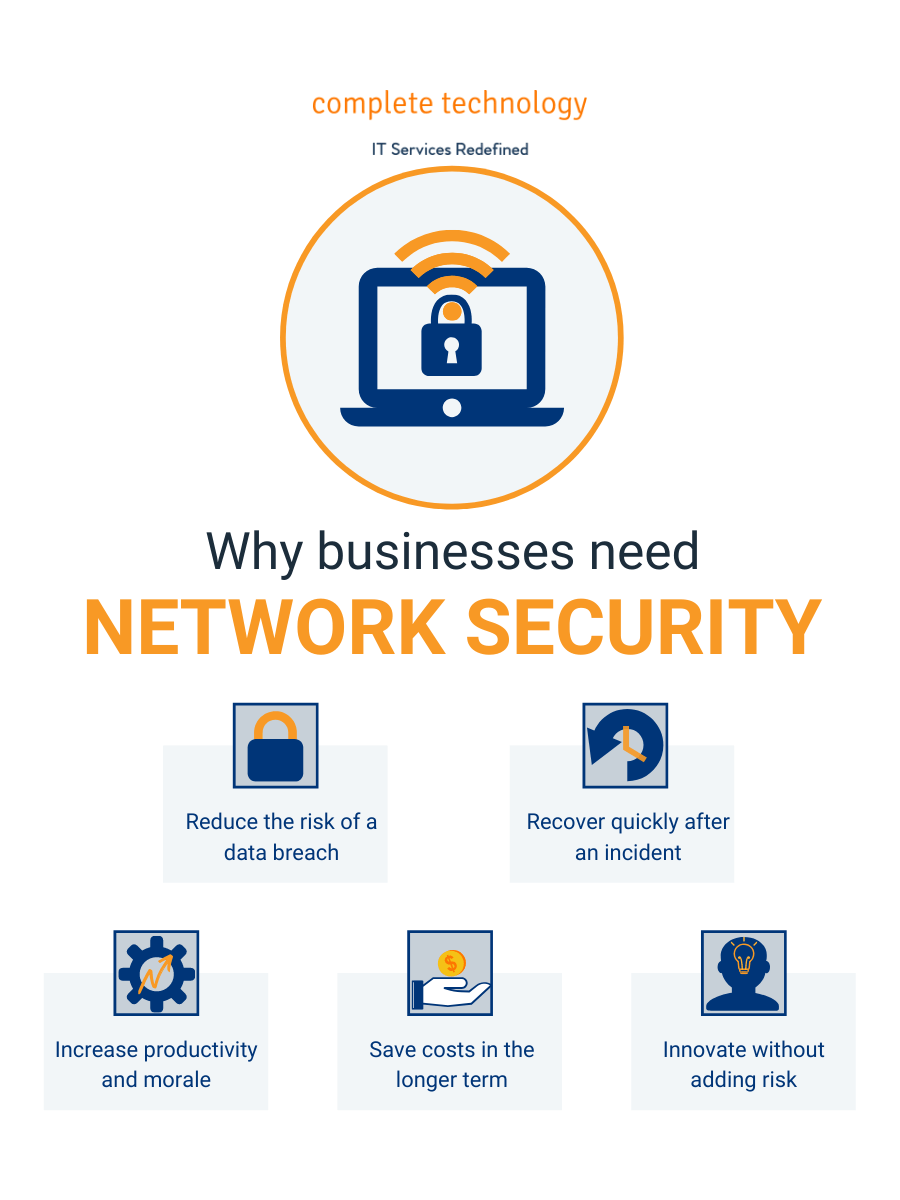Network security is a broad term that doesn’t refer to a specific type of product; rather, it’s a set of tools you can use to fortify your network from external and internal threats. In its simplest form, it refers to a set of rules and configurations put in place to safeguard the accessibility, integrity, and confidentiality of your data infrastructure. Every organization, regardless of its industry or size, needs these controls to protect against new and emerging threats.
A robust network security infrastructure provides multiple layers of protection while reducing the points of failure. It also brings everything together under a centrally managed environment where administrators can apply policies and controls across the network. Network security includes physical, technical, and administrative controls. Together, they help protect your business from a multitude of external and internal threats.
1. Reduce the risk of a data breach
The most obvious reason for implementing network security is to reduce the risk of data leaks and breaches. With unified threat management (UTM), for example, you can enforce security policies according to your priorities. Round-the-clock monitoring can proactively guard against threats and prevent them from making it into your network perimeter in the first place. Network security provides multiple layers of protection with things like multifactor authentication (MFA).
2. Recover quickly after an incident
No network security environment is ever going to be a hundred percent immune to a security breach, but having a robust security framework in place will help you discover incidents faster and recover from them with minimal long-term damage to your organization.
For example, an infrastructure incorporating full audit trails and round-the-clock monitoring of every potential access point gives administrators a complete picture of events. This reveals opportunities to improve security, performance, and other factors while also offering the means to keep track of any threats that do make it past your primary layer of security.

Want to know how to build a strong network?
Devise a cybersecurity strategy that fits your business! Start by reading our free eBook: 3 Essential types of cyber security solutions your business must have.
3. Increase productivity and morale
Information security is often seen as a costly necessity rather than a driver of innovation and business growth. But better network security can also have a positive impact on productivity and morale. Employees will be able to work with the tools they use to do their jobs without fear and adopt new technologies in confidence.
Having the right security environment also reduces the time spent on repetitive manual tasks like password management. For example, a single sign-on process, reinforced by multifactor authentication, will make it easier and quicker for people to log in and get down to work all while exponentially improving data protection.
4. Save costs in the longer term
With the average total cost of a data breach now weighing in at almost $4 million, companies must do everything they can to mitigate the risks. Even a relatively minor incident can end up costing a lot due to unscheduled downtime, but it’s the unknown costs, such as reputational damage, which are the highest and most difficult to quantify.
However, implementing network security dramatically reduces unexpected expenses and keeps risk to a healthy and manageable minimum. It might seem more expensive in the first instance, but having it in place will pay off when (and not if) the next threat emerges.
5. Innovate without adding risk
All too often information security is seen as a barrier to modernization when it should be seen as an enabler. Network security demands a rethink in which every new service or process in the organization is secure by design and default, rather than security being considered a nice-to-have or an optional and costly add-on. With a cohesive network security ecosystem, you’ll be better positioned to add and test-run new technologies and expand your hardware portfolio without introducing new risks to your organization.
Complete Technology provides cutting-edge network security solutions to keep your business out of harm’s way. But network security isn’t the only thing you have to consider. Read our free eBook: 3 Types of cybersecurity solutions your business must have to find out how you can fully protect your business.








